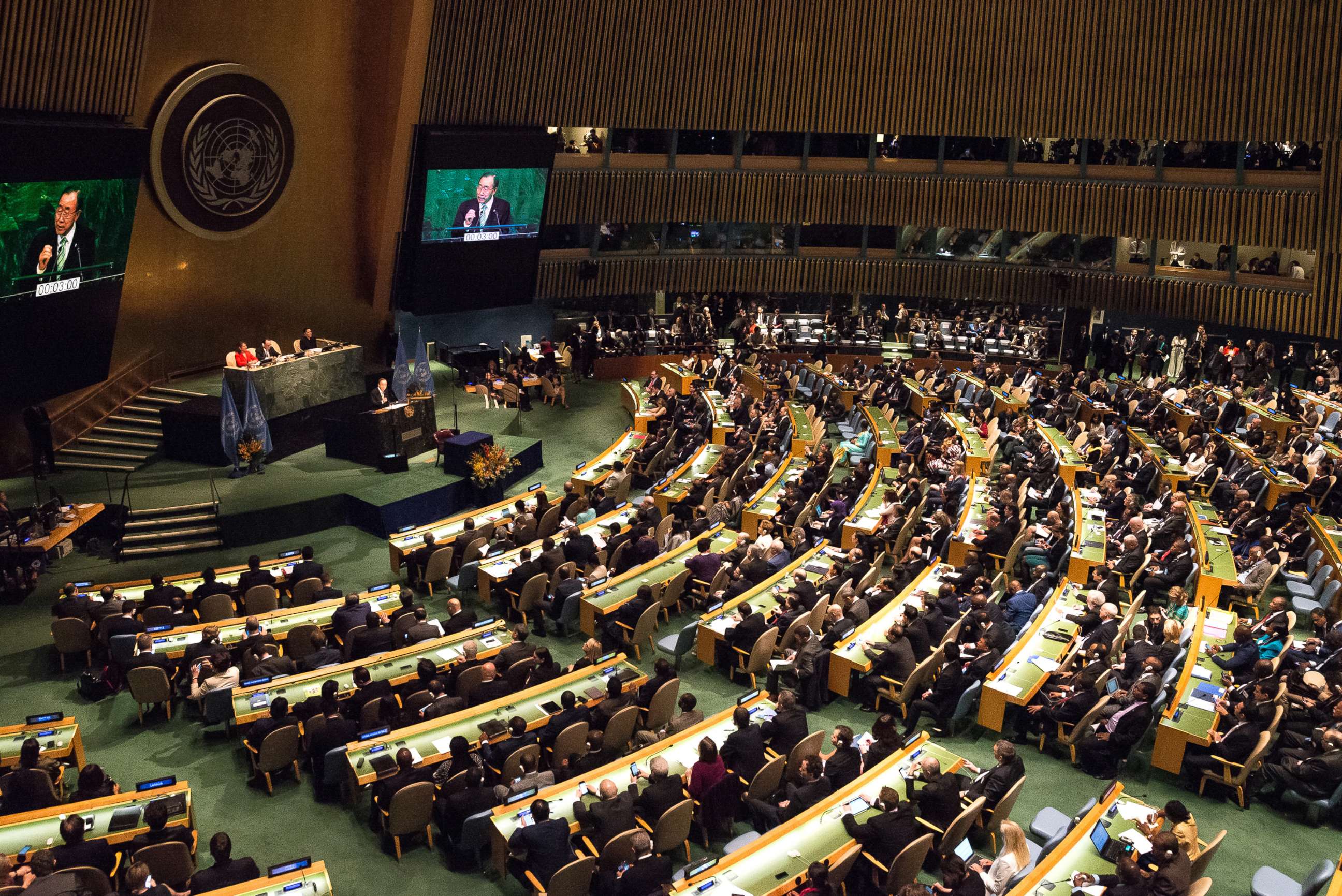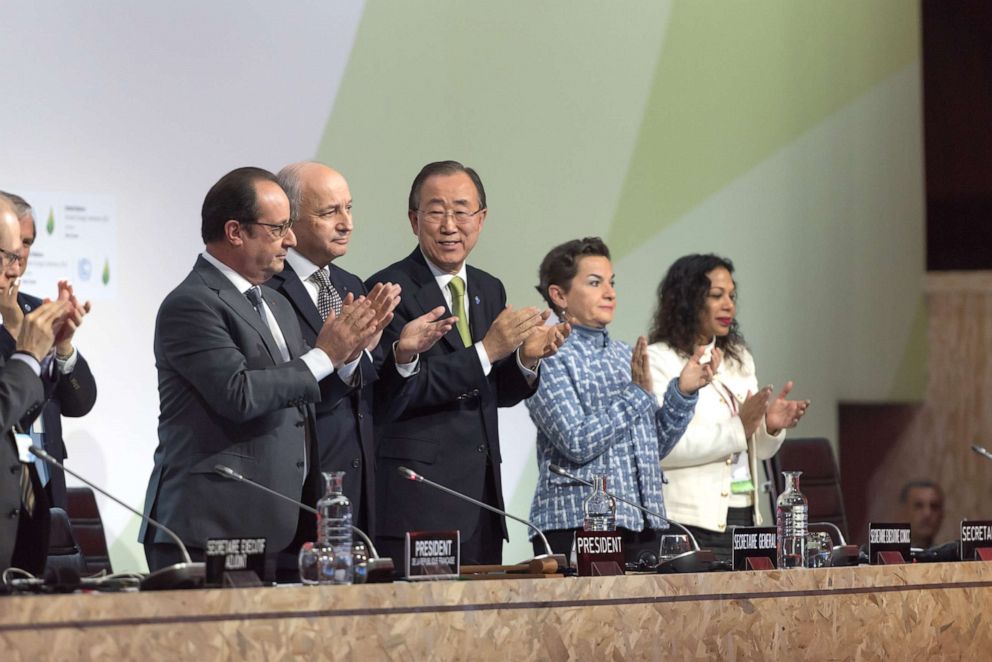What to know about the Paris climate accord, the international agreement Trump is withdrawing the US from
Many are wondering how it will affect U.S. effort to mitigate climate change.
Now that the Trump administration has taken formal steps to remove the United States from the United Nations' Paris climate accord, many are wondering how that will affect the country's participation in a global effort to mitigate climate change.
Here's exactly what the U.S. is leaving behind when the withdrawal goes into effect in 2020:
What is the Paris Agreement?
Sponsored by the United Nations Framework Convention on Climate Change, the accord was created in December 2015 with a goal to ensure that global temperatures do not increase more than 2 degrees Celsius (3.6 degrees Fahrenheit) above pre-industrial levels, which the U.N. refers to as the period between 1850 and 1900.
The agreement also aims to limit temperature increases to just 1.5 degrees above pre-industrial levels.

Other key aspects of the accord include:
— An aim to reach global peaking of greenhouse gas emissions as soon as possible, with the understanding that it will take longer for developing countries.
— An encouragement to conserve and enhance sinks and reservoirs of greenhouse gas emissions, such as forests.
— The importance of averting, minimizing and addressing loss and damage associated with the adverse effects of climate change, such as extreme weather, as well as recognizing the role of sustainable development to reduce the risk of loss and damage.
— An obligation of developed countries to support the efforts of developing countries to build "clean, climate-resilient futures" by providing financial, technological and capacity-building assistance.
— The provision of providing education, training, public awareness, public participation and public access to information on climate change.
How does the agreement propose to meet these goals?
The U.N. states that "appropriate mobilization," provision of financial resources, a new technology framework and "enhanced capacity-building" are necessary to reach the "ambitious goals" the agreement put in place.
The accord also requires all parties to "put forward their best efforts" through "nationally determined contributions" and to strengthen their efforts in the years ahead. Every five years, a "global stocktake" assesses the collective progress toward the agreement.

Who is participating?
Nearly every nation in the world has signed the agreement since it opened for signatures on April 22, 2016, which happens to be Earth Day, in New York.
Each country sets its own nonbinding targets for emissions and must regularly report its progress to reduce them to the U.N.
It is not clear what consequences could occur if a country does not meet the commitments outlined in the agreement.
Why is the Trump administration withdrawing from it?
Trump has criticized the Paris agreement, stating that it imposes an unfair burden on the U.S. and that is has done little to slow down emissions from other countries.
The president first announced plans to withdraw from the agreement in June 2017, stating that the U.S. would no longer participate, but would begin negotiations on how to possibly re-enter or work on a new accord with terms he deemed were fairer to the U.S.
The announcement prompted swift outrage from public figures around the globe.
The withdrawal will take effect on Nov. 4, 2020 -- one day after the 2020 presidential election.
ABC News' Stephanie Ebbs, Conor Finnegan and Catherine Thorbecke contributed to this report.




